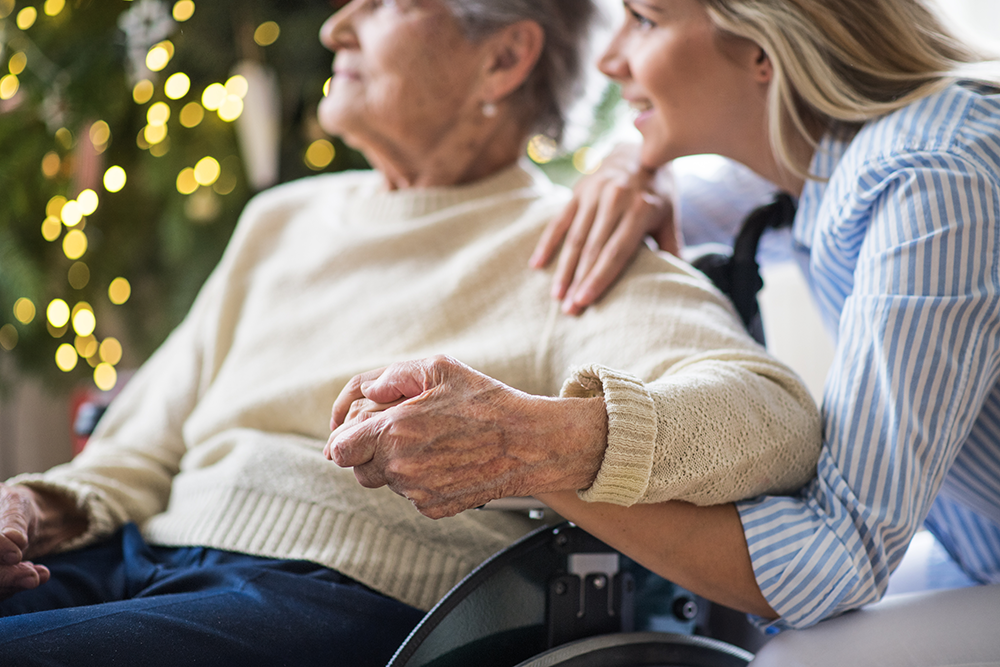The holidays are a busy time of year. We are rushing to complete our shopping lists, decorate, and put the casserole in the oven before our guests arrive. Over the next month, many of us will travel to visit our senior family members, with whom we have kept in contact via phone or email throughout the year. Here is what to look for when visiting elderly loved ones this holiday season.
Upon entering our loved ones’ homes, we might observe:
- Bills and paperwork are in disarray on the dining room table.
- Unopened and expired foods in the refrigerator.
- Expired medication bottles or pills on countertops or the floor.
After a few days of staying with our loved ones, we might notice:
- They are wearing the same clothes daily.
- They repeat the same stories.
- They will not open the refrigerator to prepare a meal unless you cue them to eat.
- They have not taken their medications, even though, per your previous phone conversations with them, they mentioned that the doctor ordered a statin medication to be taken twice daily.
- There is a ring of dust or dirt in the bathtub, which indicates that it has not been used in some time.
These are some of what to look for when visiting elderly loved ones during the holidays and indications that they may have experienced a change in their health status.
Your next steps should be:
- Call the doctor and attempt to schedule an appointment while you are still in town.
- Your loved one could be suffering from a urinary tract infection that could be treated with medications, which could help alleviate some of the confusion.
- Think about home care.
- The aide could assist in ensuring a more structured schedule for your loved one, i.e., assist with morning care, meal preparation, medication reminders, cueing for hygiene, laundry, and light housekeeping.
- The aide could also assist in taking your loved one to follow-up doctor appointments that you are scheduling.
- Explore hiring a daily money manager to assist in paying your loved one’s bills.
- Research alternate living options, such as assisted living or adding an in-law suite to your home.
- Consult a professional who could assist with planning, such as considering adult medical day care, VA benefits, Medicaid home, community-based benefits, and long-term care insurance.
Our elder and disability law firm is uniquely positioned to provide you with care options and planning strategies to help plan for your loved ones’ care. With three geriatric social workers and a team of attorneys and VA/Medicaid/health insurance specialists, we are here to guide you in making those tough decisions about what to do next after visits to your loved ones during the holidays. Contact us today to learn how we can help.


